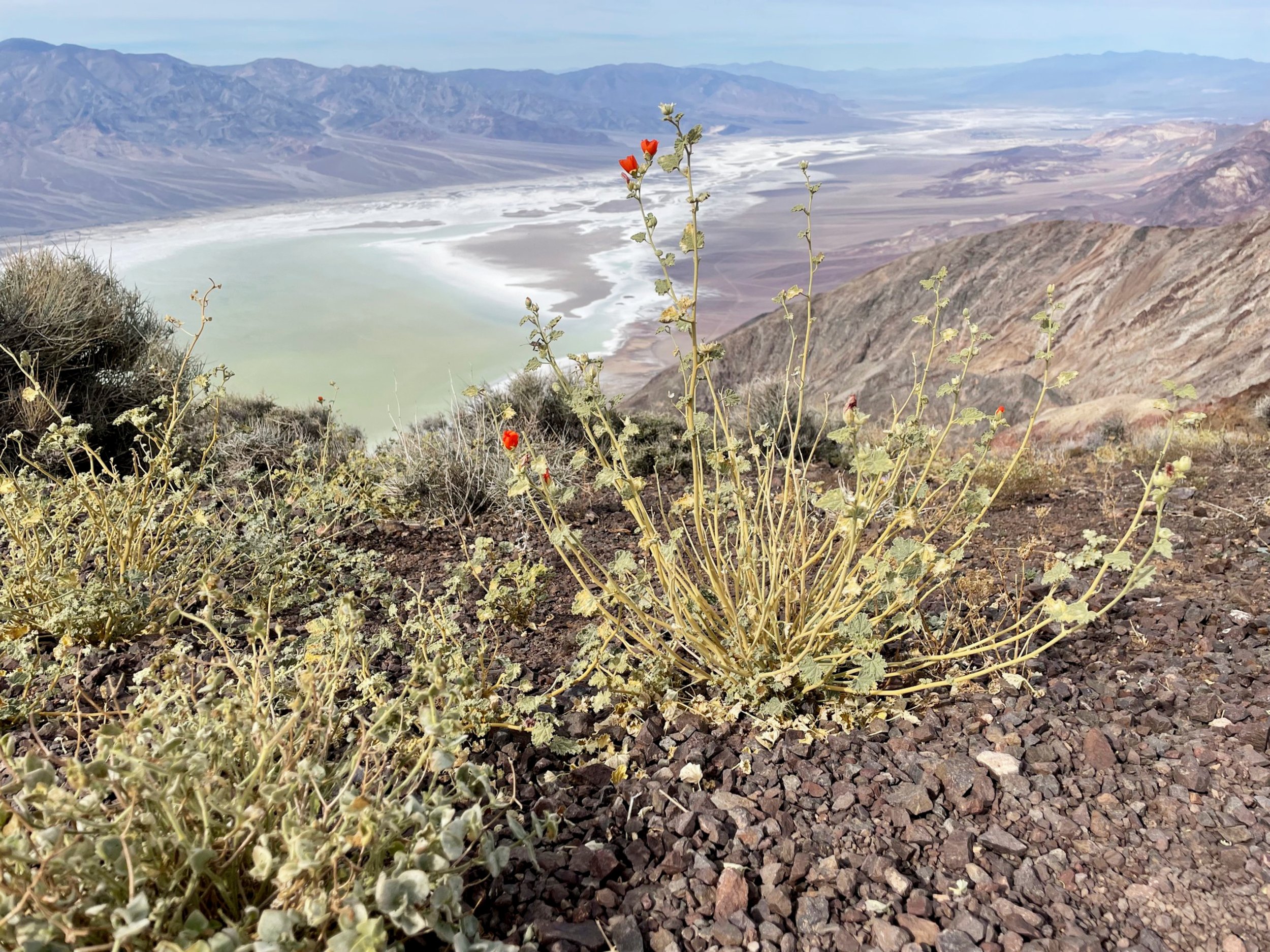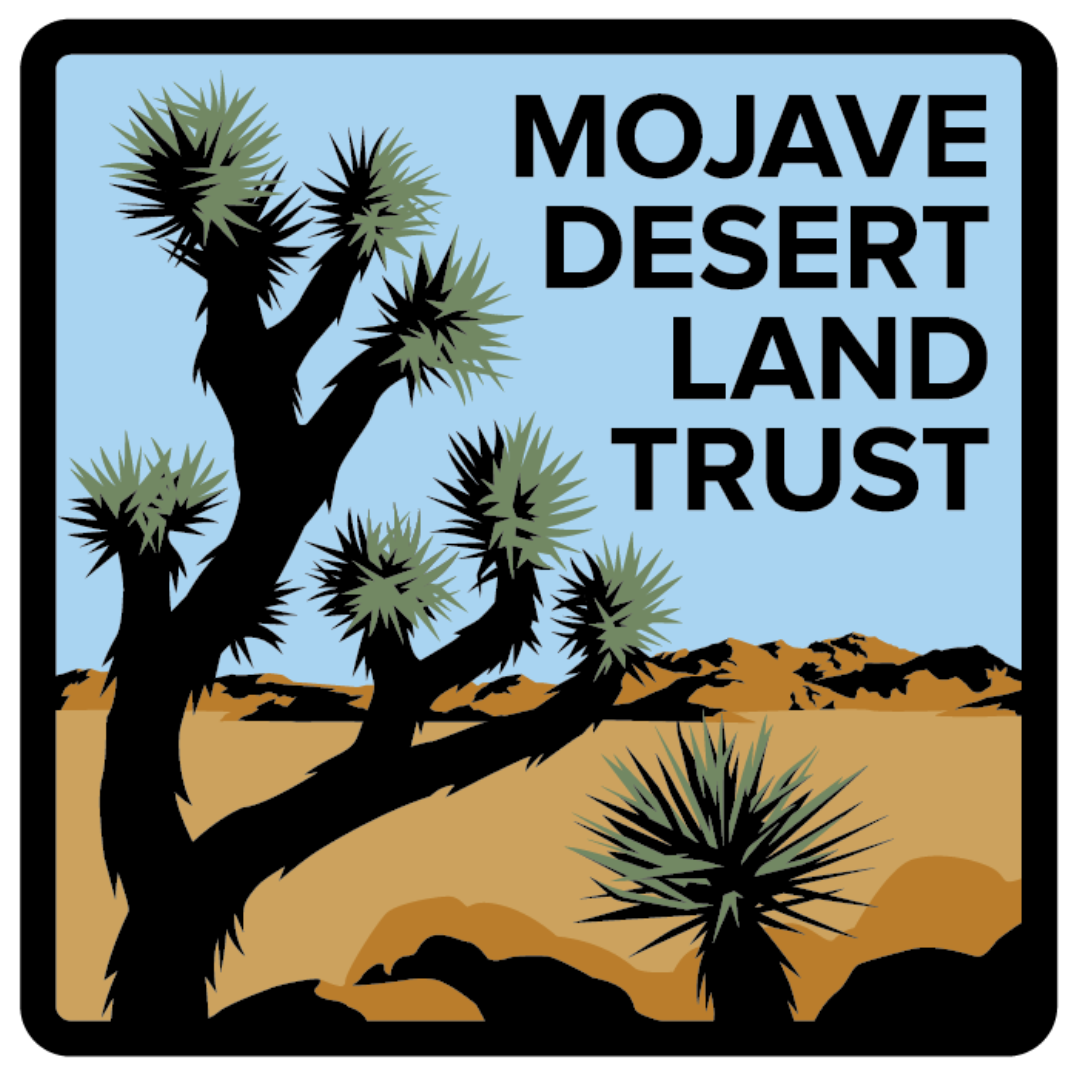A closer look at native seeds
Sphaeralcea ambigua
Apricot mallow, desert globemallow
Pictured under a dissecting scope: the seed in the center has been the subject of a cut test, in which the seed is cut in half and the degree of embryo development is assessed by MDLT Plant Conservation staff. This test is used to evaluate the quality of seed that has been processed for long-term storage. If a large proportion of seeds are empty, damaged, or have poorly developed embryos, revisions will be made to our seed collection and cleaning procedures to ensure that the Mojave Desert Seed Bank is preserving the highest quality seed possible.
Apricot mallow is a favorite food of the Mojave desert tortoise (Gopherus agassizii).
This perennial shrub bursts with stunning orange flowers when in bloom. It is a favorite food of the Mojave desert tortoise, and will attract many different pollinators. Apricot mallow is an adaptable shrub that tolerates alkaline, sand, and clay soils, and has proven effective in reducing invasive grasses on restoration projects. It is native to sandy flats, rocky slopes and canyons in desert scrub communities in the southwestern United States all the way to Sonora, Mexico. It is often one of the first native species to reestablish on lands that have been impacted by fire.

Desert globemallow (Sphaeralcea ambigua) bloom atop a ridge above Badwater Basin in Death Valley. Photo: Elis Cora


